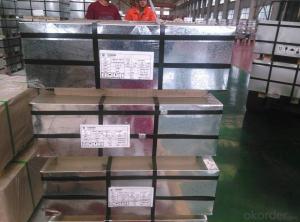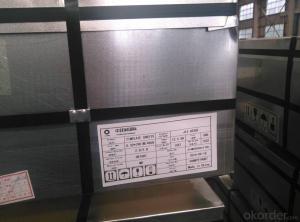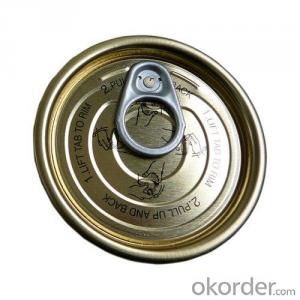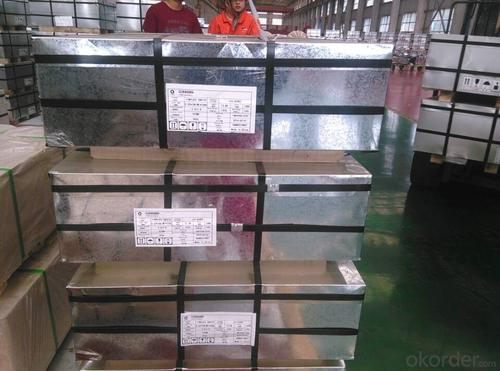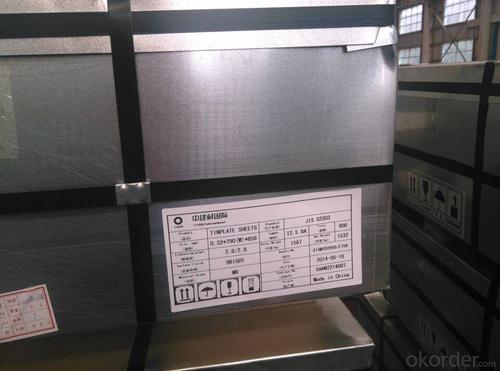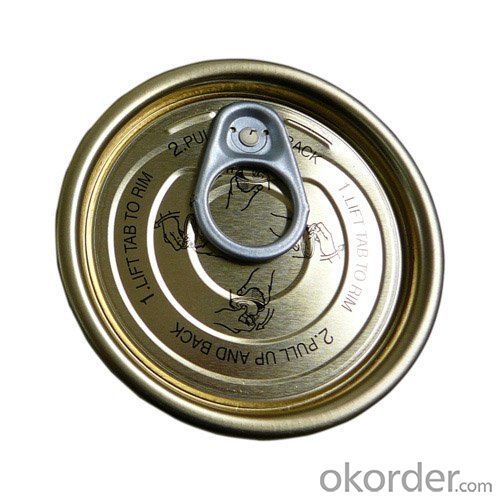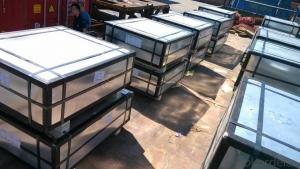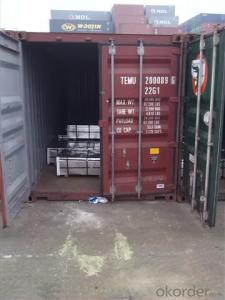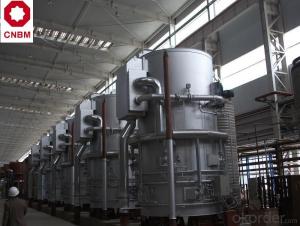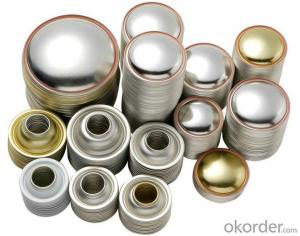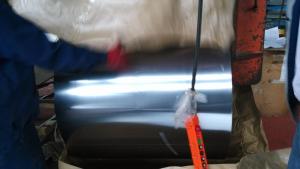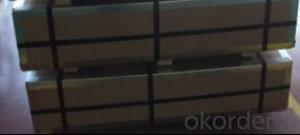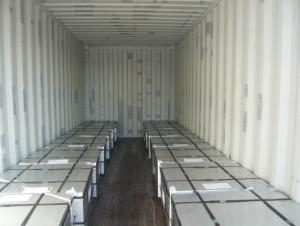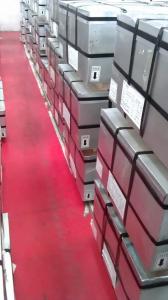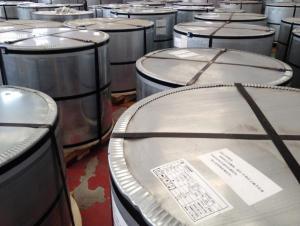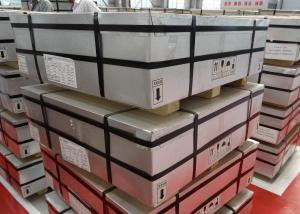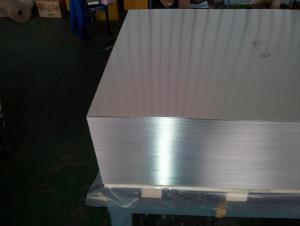SPCC/MR Material Tinplate for Chemical Usage
- Loading Port:
- Tianjin
- Payment Terms:
- TT OR LC
- Min Order Qty:
- 25 m.t.
- Supply Capability:
- 40000 m.t./month
OKorder Service Pledge
OKorder Financial Service
You Might Also Like
1.Usage
Tinplate is widely used for making all types of containers, such as paint can, oil can, aerosol cans etc., and food cans like milk powder cans, tomato paste can, dry food cans etc.
2. Specification
standard: GB/T2520, JIS G3303, DIN EN10202
Material: MR /SPCC
Thickness available: 0.16-0.50MM
Width available: 600~1050MM
Temper grade: T1 – DR8
Tin coating: 1.1g/m2~5.6g/m2
Package: sea worthy export package.
Applications: Tin can for chemicals & paint cans, industrial cans, food cans
3. Our factory photo

4. Our Markets:
now our tinplate has been sold to more than 50 countries, including Europe country, Gulf Area, South American, South Afric etc.
5. FAQ
a. what's the annual output?
about 500,000 tons per year, both BA&CA, SR&DR, thickness 0.17~0.50mm, temepr T1~DR8
b. where's the raw matrial from?
our hot rolled coil is purchased from Bao Steel, Capital Steel etc.
c. how long is the delivery time?
normally for SPCC about 45~55 days, while 65~75 days for MR material
d. how to control the quality during production process?
inside our workshop, we have MES syestem. It realizes the optimization of the production procedure in the workshop. It could record each step of the whole production procedures, and if some problem appears, factory could easily found and take action, it’s quite helpful to monitor and control the quality.
- Q: Can tinplate be used for luxury packaging?
- Yes, tinplate can be used for luxury packaging. Tinplate is a versatile material that offers excellent durability, strength, and aesthetic appeal. It can be easily shaped, printed, and decorated to create luxurious packaging designs, making it a popular choice for high-end products. Additionally, tinplate provides effective protection against moisture, light, and other external factors, ensuring the preservation and presentation of luxury goods.
- Q: How is tinplate stored and handled?
- Tinplate is typically stored in a dry and well-ventilated area to prevent rusting. It should be protected from moisture, direct sunlight, and extreme temperatures. When handling tinplate, it is important to wear gloves to avoid fingerprints and potential damage. It should be lifted carefully using appropriate equipment and stored in a manner that prevents scratching or bending.
- Q: What are the different types of tinplate finishes available?
- There are several different types of tinplate finishes available, including bright finish, stone finish, matte finish, and lacquered finish. Each finish has its own unique appearance and characteristics, allowing for a variety of options when it comes to tinplate products.
- Q: What are the different tinplate grades available in the market?
- There are several different tinplate grades available in the market, including T1, T2, T3, T4, T5, and T6. These grades vary in terms of their thickness, coating weight, and mechanical properties, making them suitable for different applications.
- Q: Can tinplate be used for packaging of chemicals?
- Yes, tinplate can be used for packaging of chemicals. Tinplate is a type of steel coated with a thin layer of tin, making it resistant to corrosion. This makes it suitable for packaging chemicals as it helps protect the contents from contact with air and moisture, ensuring their stability and longevity. Tinplate containers are also known for their strength and durability, making them a reliable choice for chemical packaging.
- Q: Can tinplate packaging be used for non-food items?
- Yes, tinplate packaging can be used for non-food items as well. It is a versatile material that offers durability and protection, making it suitable for packaging various non-food products such as cosmetics, pharmaceuticals, and household goods. Tinplate packaging helps ensure product integrity and enhances the overall appeal while providing a sustainable and recyclable option.
- Q: How does tinplate compare to aluminum packaging?
- Tinplate and aluminum packaging have their own set of advantages and disadvantages. Tinplate is generally more affordable and has good corrosion resistance, but it is heavier and less malleable than aluminum. On the other hand, aluminum is lightweight, highly malleable, and offers excellent barrier properties, but it is more expensive and can be prone to corrosion. Ultimately, the choice between tinplate and aluminum packaging depends on specific requirements such as cost, durability, and desired aesthetics.
- Q: Does tinplate corrode over time?
- Yes, tinplate can corrode over time due to exposure to moisture, oxygen, and other corrosive elements. However, the corrosion rate of tinplate is relatively slow compared to other metals, thanks to the protective layer of tin that covers the steel base. Regular maintenance and proper storage conditions can help slow down the corrosion process.
- Q: Can tinplate be used for pharmaceutical packaging?
- Yes, tinplate can be used for pharmaceutical packaging. It provides excellent protection against moisture, light, and oxygen, ensuring the integrity and longevity of pharmaceutical products. Additionally, tinplate is resistant to corrosion and has a strong barrier against external contaminants, making it a suitable choice for pharmaceutical packaging.
- Q: What are the main factors influencing the supply of tinplate?
- The main factors influencing the supply of tinplate include the availability and cost of raw materials such as tin and steel, technological advancements in tinplate production, government regulations and trade policies, demand for tinplate in various industries, and overall economic conditions affecting the manufacturing sector.
Send your message to us
SPCC/MR Material Tinplate for Chemical Usage
- Loading Port:
- Tianjin
- Payment Terms:
- TT OR LC
- Min Order Qty:
- 25 m.t.
- Supply Capability:
- 40000 m.t./month
OKorder Service Pledge
OKorder Financial Service
Similar products
Hot products
Hot Searches
Related keywords
